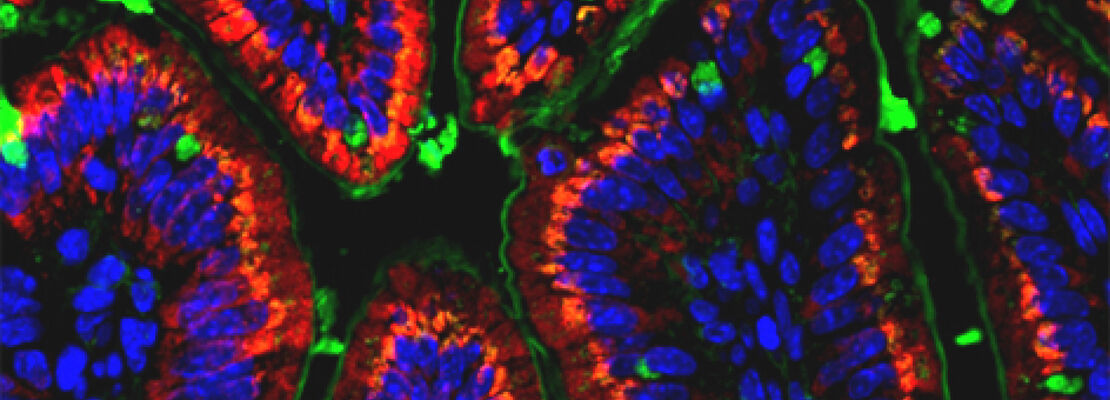During birth, the sterile intestine for the first time encounters viable microorganisms. This is in contrast to the situation in the adult intestine in which a stable and diverse microbiota helps to metabolize nutrients and protects from challenge with enteropathogenic microorganisms. The magnitude and diversity of cells of the mucosal immune system in the adult host illustrates the need to facilitate peaceful coexistence of the enteric microbiota and the host on the one hand, but to allow a rapid and efficient host response upon challenge with pathogenic microorganisms. Indeed, the majority of T lymphocytes in the adult intestine even under homeostatic conditions exhibit signs of an "alert" state. This is in contrast to the neonate, where we found active suppression of T lymphocyte maturation under homeostatic conditions. Both maternal IgA antibodies as well as neonatal T regulatory cells contribute to this suppression, which could prevent inappropriate lymphocyte stimulation during the first encounter with colonizing commensal bacteria. Of note, increasing evidence suggests that the postnatal period represents a "window of opportunity", a particularly critical period for the priming of the mucosal immune system. Studies in humans have demonstrated that the interaction of the immune system with environmental stimuli during early infancy influences the risk to develop atopic diseases such as allergies in later life.
Active suppression of intestinal CD4+TCRαβ+ T-lymphocyte maturation during the postnatal period
Natalia Torow, Kai Yu, Kasra Hassani, Jenny Freitag, Olga Schulz, Marijana Basic, Anne Brennecke, Tim Sparwasser, Norbert Wagner, André Bleich, Matthias Lochner, Siegfried Weiss, Reinhold Förster, Oliver Pabst & Mathias W. Hornef
Nat Commun. 2015 Jul 21;6:7725. doi: 10.1038/ncomms8725
<link http: www.ncbi.nlm.nih.gov pubmed external-link-new-window externen link in neuem>






















